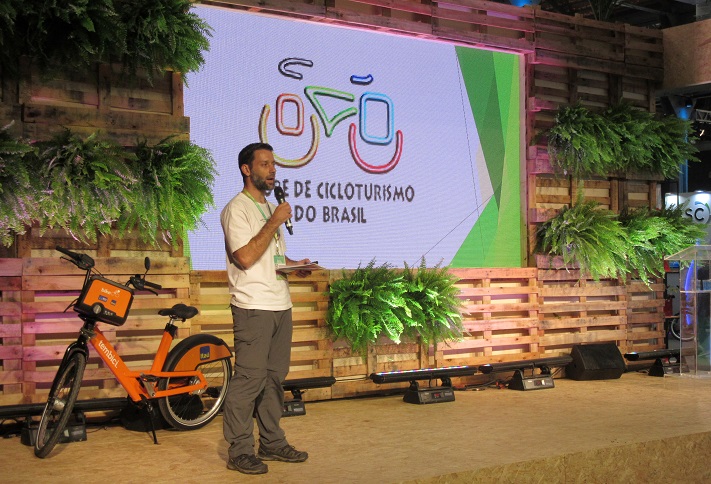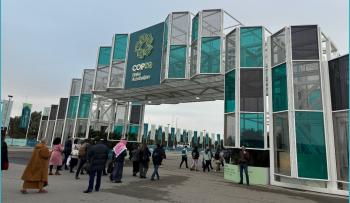
Velo-city day 1: Governance, the Wheels Behind Cycle Tourism
The importance of good governance was the focus of the first of four sessions on cycle tourism during this year’s Velo-city. Ádám Bodor, Advocacy and EuroVelo Director at the ECF, was the moderator for the session and explained that he was interested to hear the differences and the similarities between the European and the Latin American models.
Ed Lancaster, Senior Policy Officer at the ECF, gave the first presentation introducing EuroVelo, the European cycle route network, and outlining the growth of cycle tourism over the past 20 years across the continent. He then explained the different governance models that are being used on a national level. From single organisations to more developed National EuroVelo Coordination Centres, such as Fietsplatform (the Netherlands) and SwitzerlandMobility Foundation (Switzerland) that involve all the actors necessary to develop successful cycle tourism destinations.
Ivo Leonardo Scmitz from Clube de Cicloturismo gave an overview of the development of cycle tourism in Brazil. There are currently over 20 different signalised routes across the country of which the most developed is the Santa Catarina European Valley Route. He explained that based on his experience the key to success was ensuring the combined involvement of public authorities, private initiatives and civil society. The Clube de Cicloturismo are working to put Brazil on the map as a successful cycle tourism destination!
Leandro Tomaz Knopp then gave a specific example of the Sun Coast in Rio State. The region has seen considerable growth over the past ten years both in terms of inhabitants and visitors (with a corresponding increase in the number of vehicles on its roads). The public authorities have initiated a participatory process - involving civil society and academia – to turn spontaneous cycle routes that have developed into formalised networks that form part of the Urban Mobility Plan. The central feature has been the development of a touristic route called the Caminho De Darwin based on a route taken by Charles Darwin when he was preparing his Origin of Species. There are many existing attractions that can be connected by the route and it can also be used for local mobility, particularly when it passes through urban areas.
There was just enough time for a quick Q&A session with the audience where it was agreed that route maintenance provided a clear example of why governance is important or cycle tourism. Without good governance, ongoing maintenance is often neglected and can threaten the sustainability of cycle tourism initiatives.
Topics:
Contact the author
Recent news!
Upcoming events
Contact Us
Avenue des Arts, 7-8
Postal address: Rue de la Charité, 22
1210 Brussels, Belgium









